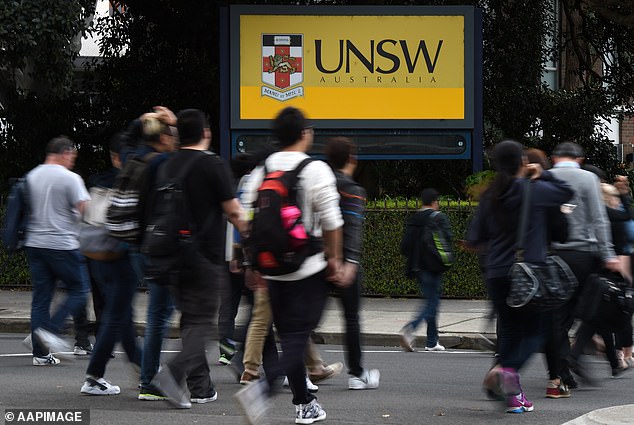Young Aussie unleashes at her massive debt – and reveals the one reason why she may never be able to pay it off
A young woman criticizes her sky-high HECS debt and fears she will never be able to repay it because of indexation.
Alicia, 28, a Sydney high school teacher and content creator, doesn’t think she’ll ever be able to repay her loan in full, now that she has completed a dual degree in science, a bachelor’s degree in urban and environmental planning and a master’s degree in education.
After completing her higher education, Alicia was left with $70,000 in debt.
Due to indexation, which adjusts the amount owed for inflation and wages, Alicia now owes $81,000, despite making regular payments.
The 28-year-old is glad she went to university as it has given her a comfortable job that she is passionate about, but she wishes she had known that her HECS debt could increase.
“I started studying when I was 17, I didn’t know all the information I have now,” she said news.com.au.
‘I didn’t know what indexing was and to be honest, I still don’t fully understand how it works.
“When we started college, we were told, ‘This is the cost of the course or the cost per semester,’ and that was it.
Alicia (pictured) is a Sydney high school teacher and content creator who admits she feels it is “pointless” to pay off her HECS debt in full.

Alicia has accrued $70,000 in HECS debt after completing a dual degree in science, a bachelor’s degree in urban and environmental planning and a master’s degree in education
‘None of us knew what indexation was or that it was even part of our HECS. How it could go from 0.6 percent to 7.4 percent.’
Alicia didn’t realize her debt had increased by $11,000 until she filed her taxes for the 2023-2024 tax year.
She described HECS as a ‘broken system that continues to punish young people’ who are ‘forced to go to university’, noting that it feels ‘pointless’ to pay it off.
“What happens if I decide to start a family and go on maternity leave, and then the payments stop again and keep going up?” she asked.
‘If things continue like this, with indexation, no one knows how much our HECS debts will really cost us and whether we will ever be able to pay them off.’
Alicia added that the debt will likely affect her chances of getting a mortgage and that it’s already taking a huge toll on her finances, with $500 being deducted from her paycheck every two weeks.
The young teacher has been open with her online audience in a discussion of the reality of her student debt.
Shockingly, many commentators claim they are also struggling to repay their HECS.
“Mine is already over 100,000 and I can’t breathe just thinking about it,” one person wrote.
“Life feels like a scam right now,” said another.
“Mine is indexed and is at 95,000. I just agreed to pay off the index for the rest of my life,” wrote another.
“Mine was $30,000 and now somehow it’s $61,000! I know they went up but come on! I’m pretending it doesn’t exist,” said one.

Alicia (pictured) said she knew nothing about indexation when she applied for a HECS loan at 17 and now faces paying an extra $11,000 because of the system
Data from comparison website Finder shows the average HECS debt is $40,000, with 21 per cent owing between $40,000 and $100,000 and just over one per cent owing more than $100,000.
People in debt are also increasingly concerned about the size of their debt, with 63 percent somewhat or very concerned about their ability to repay their debt, compared to 54 percent last year.
However, twelve percent do not think they will ever be able to fully repay the debt.
Financial expert Richard Whiten told the outlet that people who want to repay HECS on top of their other debts should focus on prioritising their loans.
He described HECS as a “flexible” repayment scheme and told young Australians to pay off debts that carry the highest interest first.
